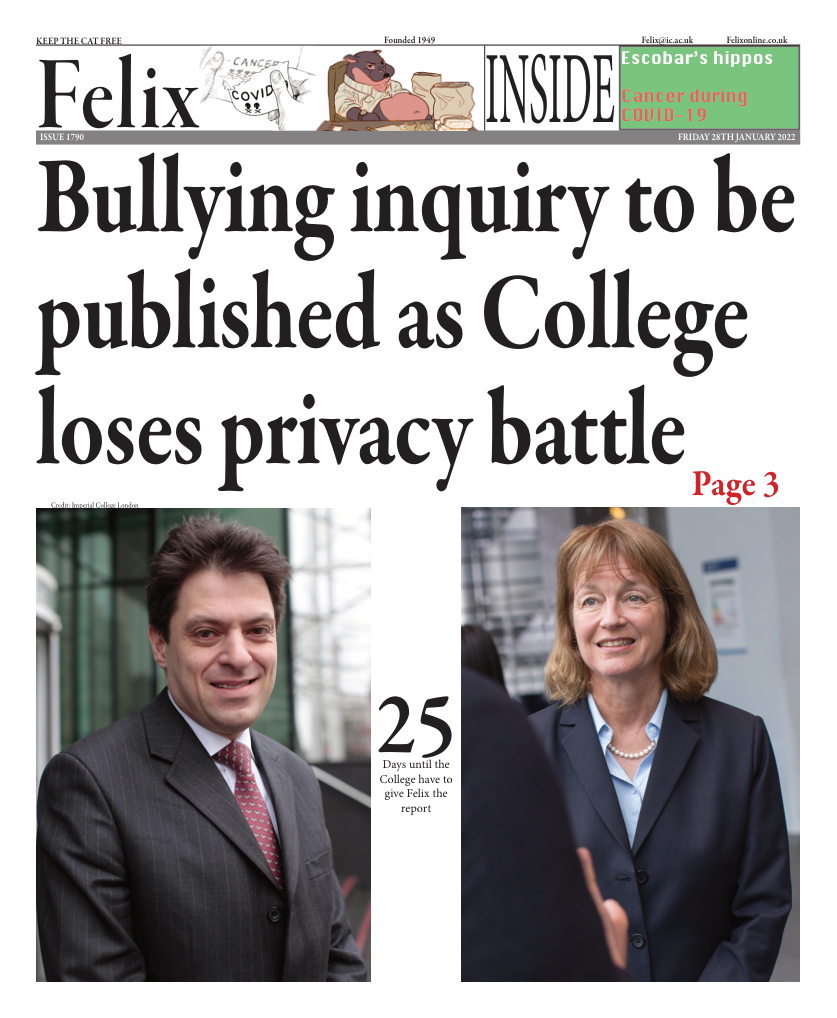Students concerned by lack of options to critique lecturers as SOLE replaced with MEQ
The annual SOLE survey at Imperial College has been replaced with a ‘Module Evaluation Questionnaire’.

The annual SOLE survey at Imperial College has been replaced with a ‘Module Evaluation Questionnaire’. The questionnaire launched on December 7th and closed January 24th. It will be re-run for the Spring and Summer terms, from 17th March - 21st April and 24th May - 21st June.
A student on the discussion board noted that the MEQ did not offer the option to give feedback on individual lecturers. They also said that they were limited to 300 characters when giving feedback on individual modules.
Comms surrounding the MEQ included ‘The core questions have been reformatted to focus on the teaching (module) rather than the teacher (lecturer)’. It added that feedback on the survey will be received from students and staff during its first year of implementation.
According to Union Deputy President (Education) Daniel Lo, a review of SOLE has been on the College’s agenda since 2017.
The departments of Bioengineering and Earth Sciences are apparently boycotting the survey, though the reason for this boycott is currently unknown.
The 3rd year coordinator for the Computing Department explained that the MEQ had “focus... more on the module feedback rather than individual lecturer feedback”.
It was highlighted that decisions on the changes to the survey has been made using “staff and student feedback and with input from the College Union”.
The survey is currently not listed on the Imperial College website.
International concern has been raised over the abuse of anonymous surveys by unhappy or angry students. News website The Conversation surveyed 791 academics in Australia and heard testimony of a plethora of vindictive comments that could not reasonably be conceived as constructive.
One lecturer said she’d received a comment “That fucking d*ke bitch failed me she’s fucking useless that’s why I failed”.
One comment, which is hard to believe was seriously submitted, was “What the fuck did you think you were doing to take a couple of days off for your grandmother’s funeral when we had an assignment due?”
Threats included “I’d like to shove a broom up her arse” and “She should be stabbed with a pitchfork”.
On analysis of the data collected, the article said “a profile is emerging of a highly traumatised workforce”.
Critics of such surveys have said that anonymity should not be upheld in severe circumstances. Others have said that anonymity should be maintained between student and lecturer but that the institution should know the identity of the person taking the survey.
The criticism comes against a backdrop of wider discussion around the use of online anonymity to abuse people in ways that would not occur in public. The government’s Online Safety Bill, which recently received strong criticism from its parliamentary committee for not going far enough in many areas, is expected to reach parliament early this year. It includes measures aimed at preventing hate speech and “cyberbullying”.



